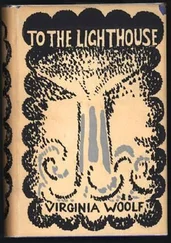“Well done, Katharine! What a wonderful head for business you’ve got! Now I shall keep this before me, and every day I shall make a little mark in my pocketbook, and on the last day of all—let me think, what shall we do to celebrate the last day of all? If it weren’t the winter we could take a jaunt to Italy. They say Switzerland’s very lovely in the snow, except for the cold. But, as you say, the great thing is to finish the book. Now let me see—”
When they inspected her manuscripts, which Katharine had put in order, they found a state of things well calculated to dash their spirits, if they had not just resolved on reform. They found, to begin with, a great variety of very imposing paragraphs with which the biography was to open; many of these, it is true, were unfinished, and resembled triumphal arches standing upon one leg, but, as Mrs. Hilbery observed, they could be patched up in ten minutes, if she gave her mind to it. Next, there was an account of the ancient home of the Alardyces, or rather, of spring in Suffolk, which was very beautifully written, although not essential to the story. However, Katharine had put together a string of names and dates, so that the poet was capably brought into the world, and his ninth year was reached without further mishap. After that, Mrs. Hilbery wished, for sentimental reasons, to introduce the recollections of a very fluent old lady, who had been brought up in the same village, but these Katharine decided must go. It might be advisable to introduce here a sketch of contemporary poetry contributed by Mr. Hilbery, and thus terse and learned and altogether out of keeping with the rest, but Mrs. Hilbery was of opinion that it was too bare, and made one feel altogether like a good little girl in a lecture-room, which was not at all in keeping with her father. It was put on one side. Now came the period of his early manhood, when various affairs of the heart must either be concealed or revealed; here again Mrs. Hilbery was of two minds, and a thick packet of manuscript was shelved for further consideration.
Several years were now altogether omitted, because Mrs. Hilbery had found something distasteful to her in that period, and had preferred to dwell upon her own recollections as a child. After this, it seemed to Katharine that the book became a wild dance of will-o’-the-wisps, without form or continuity, without coherence even, or any attempt to make a narrative. Here were twenty pages upon her grandfather’s taste in hats, an essay upon contemporary china, a long account of a summer day’s expedition into the country, when they had missed their train, together with fragmentary visions of all sorts of famous men and women, which seemed to be partly imaginary and partly authentic. There were, moreover, thousands of letters, and a mass of faithful recollections contributed by old friends, which had grown yellow now in their envelopes, but must be placed somewhere, or their feelings would be hurt. So many volumes had been written about the poet since his death that she had also to dispose of a great number of misstatements, which involved minute researches and much correspondence. Sometimes Katharine brooded, half crushed, among her papers; sometimes she felt that it was necessary for her very existence that she should free herself from the past; at others, that the past had completely displaced the present, which, when one resumed life after a morning among the dead, proved to be of an utterly thin and inferior composition.
The worst of it was that she had no aptitude for literature. She did not like phrases. She had even some natural antipathy to that process of self-examination, that perpetual effort to understand one’s own feeling, and express it beautifully, fitly, or energetically in language, which constituted so great a part of her mother’s existence. She was, on the contrary, inclined to be silent; she shrank from expressing herself even in talk, let alone in writing. As this disposition was highly convenient in a family much given to the manufacture of phrases, and seemed to argue a corresponding capacity for action, she was, from her childhood even, put in charge of household affairs. She had the reputation, which nothing in her manner contradicted, of being the most practical of people. Ordering meals, directing servants, paying bills, and so contriving that every clock ticked more or less accurately in time, and a number of vases were always full of fresh flowers was supposed to be a natural endowment of hers, and, indeed, Mrs. Hilbery often observed that it was poetry the wrong side out. From a very early age, too, she had to exert herself in another capacity; she had to counsel and help and generally sustain her mother. Mrs. Hilbery would have been perfectly well able to sustain herself if the world had been what the world is not. She was beautifully adapted for life in another planet. But the natural genius she had for conducting affairs there was of no real use to her here. Her watch, for example, was a constant source of surprise to her, and at the age of sixty-five she was still amazed at the ascendancy which rules and reasons exerted over the lives of other people. She had never learnt her lesson, and had constantly to be punished for her ignorance. But as that ignorance was combined with a fine natural insight which saw deep whenever it saw at all, it was not possible to write Mrs. Hilbery off among the dunces; on the contrary, she had a way of seeming the wisest person in the room. But, on the whole, she found it very necessary to seek support in her daughter.
Katharine, thus, was a member of a very great profession which has, as yet, no title and very little recognition, although the labor of mill and factory is, perhaps, no more severe and the results of less benefit to the world. She lived at home. She did it very well, too. Any one coming to the house in Cheyne Walk felt that here was an orderly place, shapely, controlled—a place where life had been trained to show to the best advantage, and, though composed of different elements, made to appear harmonious and with a character of its own. Perhaps it was the chief triumph of Katharine’s art that Mrs. Hilbery’s character predominated. She and Mr. Hilbery appeared to be a rich background for her mother’s more striking qualities.
Silence being, thus, both natural to her and imposed upon her, the only other remark that her mother’s friends were in the habit of making about it was that it was neither a stupid silence nor an indifferent silence. But to what quality it owed its character, since character of some sort it had, no one troubled themselves to inquire. It was understood that she was helping her mother to produce a great book. She was known to manage the household. She was certainly beautiful. That accounted for her satisfactorily. But it would have been a surprise, not only to other people but to Katharine herself, if some magic watch could have taken count of the moments spent in an entirely different occupation from her ostensible one. Sitting with faded papers before her, she took part in a series of scenes such as the taming of wild ponies upon the American prairies, or the conduct of a vast ship in a hurricane round a black promontory of rock, or in others more peaceful, but marked by her complete emancipation from her present surroundings and, needless to say, by her surpassing ability in her new vocation. When she was rid of the pretense of paper and pen, phrase-making and biography, she turned her attention in a more legitimate direction, though, strangely enough, she would rather have confessed her wildest dreams of hurricane and prairie than the fact that, upstairs, alone in her room, she rose early in the morning or sat up late at night to … work at mathematics. No force on earth would have made her confess that. Her actions when thus engaged were furtive and secretive, like those of some nocturnal animal. Steps had only to sound on the staircase, and she slipped her paper between the leaves of a great Greek dictionary which she had purloined from her father’s room for this purpose. It was only at night, indeed, that she felt secure enough from surprise to concentrate her mind to the utmost.
Читать дальше












